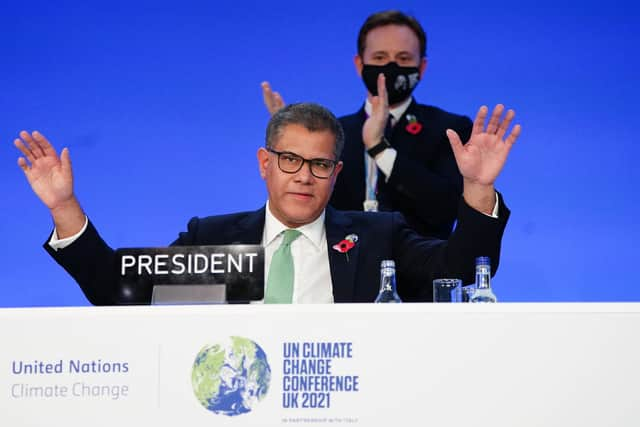Leader - Now the challenge must be to revive 1.5


Emotional and sleep deprived, COP26 President Alok Sharma announced a breakthrough on Saturday evening, more than 24 hours after the conference was scheduled to have finished.
The Glasgow Climate Pact is the first deal of its kind to explicitly plan for reduced use of coal, the worst fossil fuel for greenhouse gases. The deal also presses for more urgent emission cuts and pledges more money for developing countries to help them adapt.
Advertisement
Hide AdAdvertisement
Hide AdBut, crucially, China and India successfully pushed for the language on coal to be watered down, replacing “phase out” with “phase down”.
As the effects of climate change become ever more apparent across the world, this shift from a clearly defined goal to something less tangible is a major blow.
And yet it would be a mistake to write the summit off as a failure because of this.
Glasgow will go down as a historic milestone in the fight against climate change because it marks the first time fossil fuels including coal have been explicitly mentioned in a UN climate agreement. There were also significant deals struck on deforestation, clean technology and methane emissions.
These are solid foundations on which leaders can build at next year’s summit in Cairo. In the meantime, governments must be held to commitments solemnly made on the banks of the Clyde.
Scientists are unequivocal about the urgency with which all countries must cut their emissions. It is understandable that more developed nations feel deep frustration towards less developed major polluters that have seemed to drag their feet over signing up to tough reductions targets.
But if politics is the art of the possible then Glasgow’s achievement has been to start such nations on the path of reducing use of fossil fuels such as coal – a path down which they had refused to go before.
The challenge now is to accelerate the pace of change and revive 1.5.